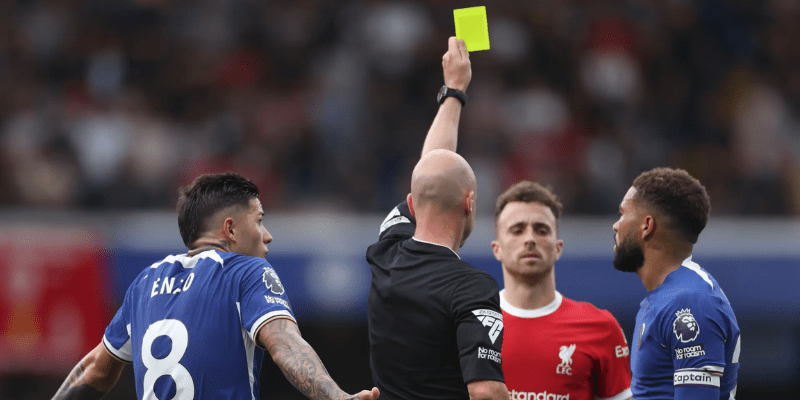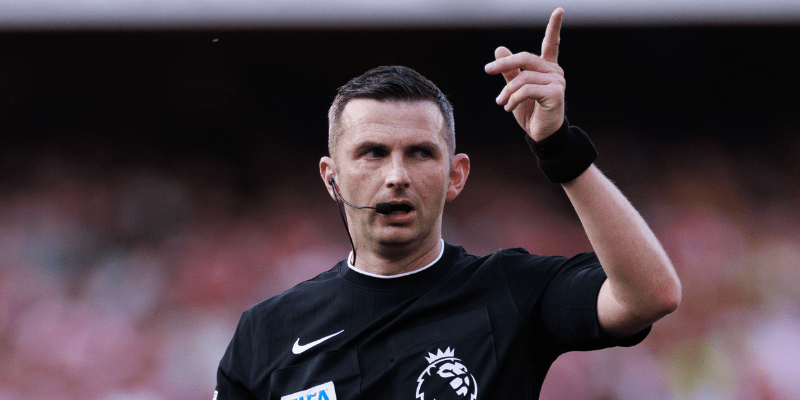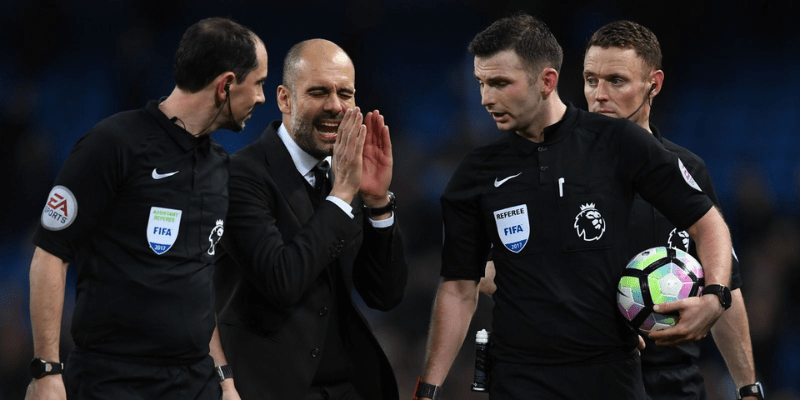When fans debate football controversies, one common question pops up: are EPL referees full time professionals, or do they have other jobs on the side? The answer is simple but fascinating. Since 2001, the Premier League has employed referees as full-time professionals, making England one of the first leagues to professionalize officiating. Today, around 20–21 referees belong to the elite “Select Group 1,” contracted to the PGMOL (Professional Game Match Officials Limited). They earn annual salaries plus match fees, undergo intensive training, and dedicate their entire careers to refereeing.
In this article, FreeKickSEO will explore how refereeing in the Premier League evolved into a full-time profession, what salaries look like, what daily life for referees includes, and how this compares with officials in lower divisions and other leagues.
The professionalization of referees in the Premier League

The Premier League’s rapid rise in global popularity and financial power demanded higher standards, referees balanced their roles with full-time jobs, such as teaching or law enforcement. However, the introduction of professional referees in 2001 marked a turning point.
This shift allowed referees to train like athletes, focusing on fitness, tactical awareness, and communication. It also meant they could devote more time to video analysis, understanding team strategies, and preparing mentally for high-pressure games. By employing full-time EPL referees, the league reduced errors, improved consistency, and increased accountability.
Salary and earnings of EPL referees
Fans often wonder how much money referees make compared to players. While they don’t touch superstar wages, they earn a highly respectable income.
- Annual salaries for Select Group 1 referees reportedly range between £73,000 and £147,000 depending on seniority.
- On top of this, referees earn match fees of roughly £1,100–£1,500.
- Experienced referees like Michael Oliver and Anthony Taylor can earn around £180,000–£200,000 annually when combining base pay and match bonuses.
Compared to players, referees earn modestly. But compared to average UK wages, their income firmly places them among the country’s high earners. This financial recognition also reflects the pressure they face — one incorrect call can shift the course of a season.
Training, preparation, and lifestyle of referees
Being a full-time Premier League referee is not just about blowing the whistle on weekends. Their weekly routines are designed to mirror professional athletes.
Physical preparation
Referees cover 7–10 miles.
Tactical study
Referees analyze team tactics, pressing styles, and players’ tendencies. Knowing whether Erling Haaland makes certain runs, or how Bruno Fernandes reacts under pressure, helps anticipate situations before they escalate.
Mental preparation
Handling hostile crowds, dealing with aggressive managers, and making split-second decisions under scrutiny demand extreme mental resilience. Referees work with psychologists to sharpen focus and emotional control.
Their lifestyle is structured, disciplined, and constantly under the microscope — proving that EPL referees are full time professionals in every sense.
Refereeing in lower divisions vs the Premier League

Not every referee in England is full-time. The distinction lies between the Premier League and the rest of the pyramid.
- EFL Championship, League One, and League Two referees are generally part-time. Many balance officiating with other jobs.
- They earn lower base fees, typically a few hundred pounds.
- Only those who break into Select Group 1 and officiate Premier League fixtures achieve full-time professional status.
This contrast shows how the Premier League’s financial power enables it to professionalize referees, while lower leagues still rely on a semi-professional model.
Comparison with referees in other leagues
The Premier League is not alone in hiring full-time referees, but it remains one of the leaders.
- La Liga and Serie A: Referees are full-time professionals with similar pay structures, though salaries are generally lower than in England.
- Bundesliga: Germany employs referees on a hybrid model. They are well-compensated but often maintain part-time jobs alongside officiating.
- MLS and smaller leagues: Many referees work part-time and cannot dedicate themselves fully to officiating.
The Premier League’s investment makes its referees among the best-paid and most rigorously trained officials in world football.
Criticism and pressure on EPL referees

Even as full-time professionals, referees remain constant targets of criticism. VAR has intensified scrutiny, with fans, pundits, and managers dissecting every decision.
High-profile mistakes spark debates about accountability. Some argue referees should give post-match interviews like players and managers. Others call for more transparency. Despite being full-time EPL referees, they face relentless pressure, proving that money and professionalism do not erase human error.
Yet their resilience — handling boos,000 fans while staying composed — demonstrates why refereeing is one of the toughest jobs in football.
Conclusion
So, are EPL referees full time? Yes, Premier League referees are among the few in world football who work exclusively as professional officials. They earn six-figure salaries, dedicate their lives to training, and endure immense scrutiny with every decision. Their full-time status reflects the Premier League’s ambition to maintain the highest standards of officiating.
As fans, we often celebrate players but forget the unseen professionals ensuring fairness. Next time you watch a heated clash between Manchester United and Liverpool, remember that behind the whistle stands a referee who trains, prepares, and performs just like the athletes on the pitch.
In this article, FreeKickSEO has guided you through the world of Premier League refereeing. Stay with us for more deep dives into football’s hidden stories — from transfers to legends’ biographies — and keep fueling your passion for the beautiful game.






